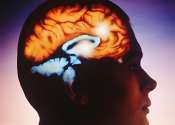Study unveils the engagement of different cortical networks while humans are unconscious
States of unconsciousness, such as those that occur during sleep or while under the effect of anesthesia, have been the focus of countless past neuroscience studies. While these works have identified some brain regions that ...








